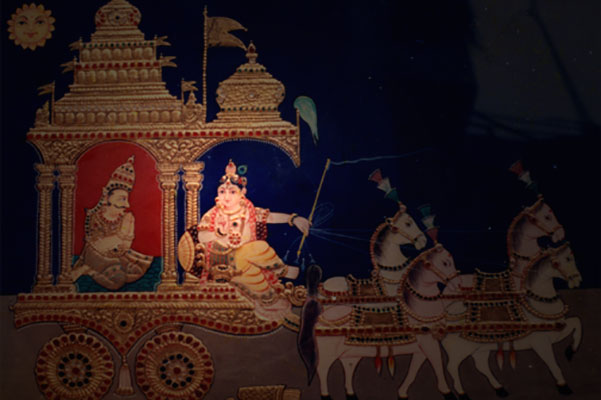In the Gita, Krishna advises Arjuna on performing his Dharma as a warrior and not take on somebody else’s Dharma. But is it really that inflexible? I may be a peace-loving person now, but tomorrow I may see great injustice being done and I may take up the duty of a Kshatriya to find a solution. Doesn’t one’s Dharma at a point of time depend on one’s mental state and inclinations?

Dharma is an interesting concept. It is dynamic. Dharma changes according to SITA – Space, Individual, Time & Awareness. So what is dharma today for you may not be dharma for someone else, or it may turn out to be adharma tomorrow for you.
Each one of us have not just one dharma (except the param dharma – supreme dharma – that is self-realization).
As a child, parent, employee, neighbour, driver, traveller, pedestrian, human, National, etc we have so many dharma to play in life. All these dharma are important.
As a brother, one has the dharma to protect your sisters. If your conscience (“manasakshi”) tells that it is your duty to protect someone in distress, you must act accordingly. Every action has a result – it will have its own consequences. Good action will have good results, bad action will have bad results. One of the questions we need to ask ourselves when we do our dharma is – “is our action selfless?”.
As a wife, mother, daughter, self – a lady can have multiple things to do, but what is the right dharma? Be with husband, help the child to learn, take care of the ailing mother or go to an ashram? More often than not, life is not in black and white. We need to awaken Viveka (discrimination) to decide our own dharma at a particular time and place. What is your primary dharma and secondary dharma? When there is a conflict leaving the secondary, follow primary dharma.
